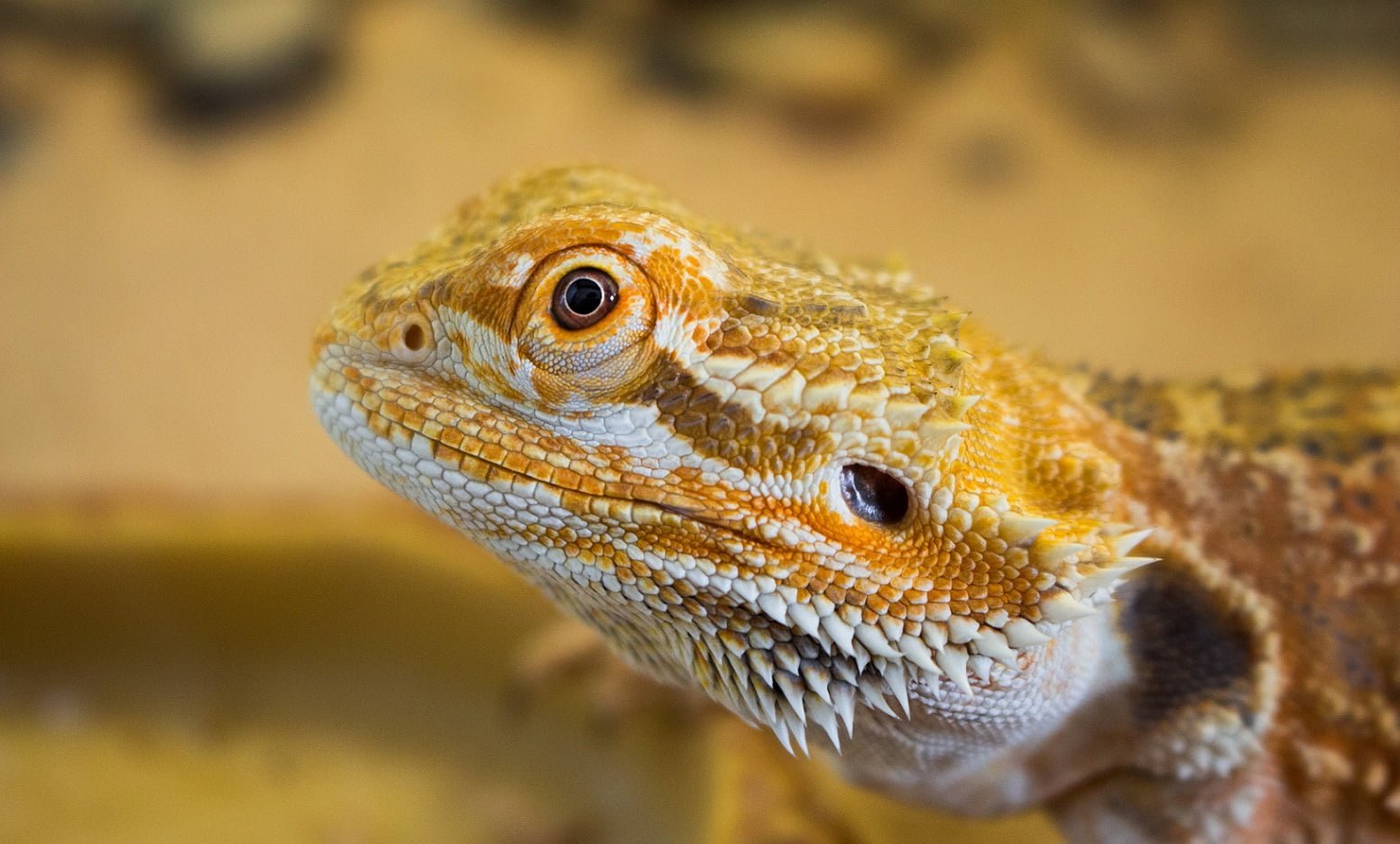If you’re looking for a unique and fascinating pet, exotic animals might be the way to go. From bearded dragons to skunks, there are many different types of exotic pets to choose from.
Many people are fascinated by the idea of owning an exotic pet. Exotic pets are unique, beautiful, and sometimes very rare animals that can be kept as pets.
However, owning an exotic pet comes with a unique set of challenges, including the need for specialized care, expensive diets, and often strict legal requirements. Despite these challenges, there are many exotic pets that make excellent companions.
Before that, What is An Exotic Pet?
An exotic pet is any non-traditional pet that is not commonly kept and is not native to the owner’s country.
These can include a wide variety of species, such as reptiles, birds, mammals, and even some insects. Exotic pets are often chosen for their unique appearance or interesting behaviors, but they can also require specialized care, diet, and housing.
However, before you go ahead and bring one of these amazing creatures home, it’s important to understand that owning an exotic pet comes with its own set of challenges and considerations.
10 Best Exotic Pets Ranked
In this section, we will explore some of the best exotic pets that you can consider ranked from best to least.
Top 1: Bearded Dragons
Bearded dragons are low-maintenance and friendly reptiles native to Australia. They’re popular among pet owners because of their playful personalities and are an excellent choice for first-time exotic pet owners.
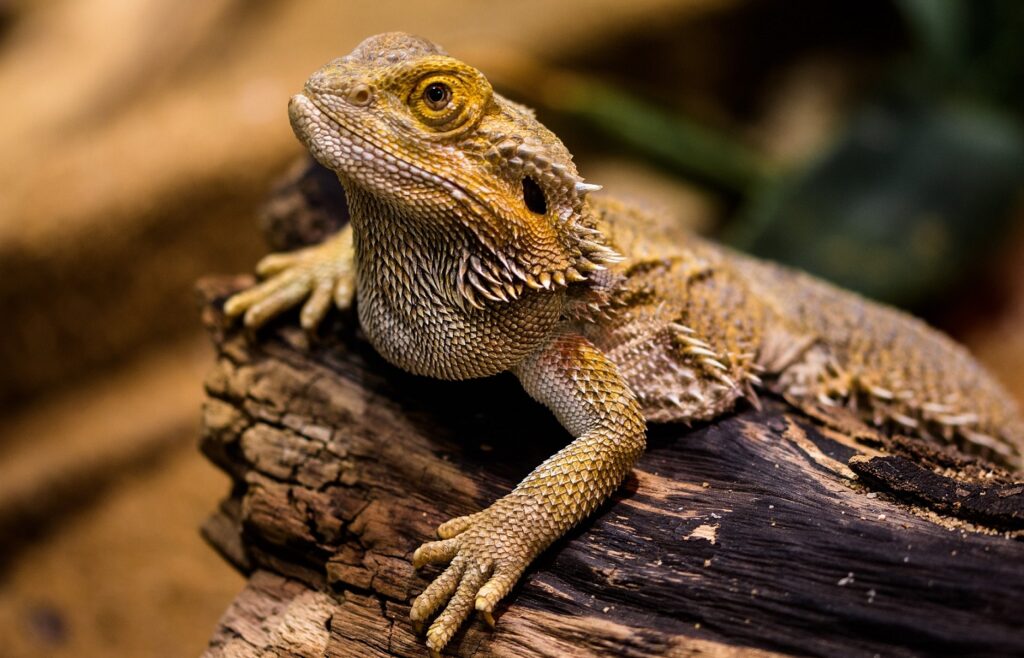
They require a spacious enclosure with a basking area, UVB lighting, and a diet consisting of insects and greens.
Top 2: Sugar Gliders
Sugar gliders are small, social marsupials native to Australia and Indonesia. They’re popular pets due to their playful personalities and make great companions for those who are looking for a loyal friend.
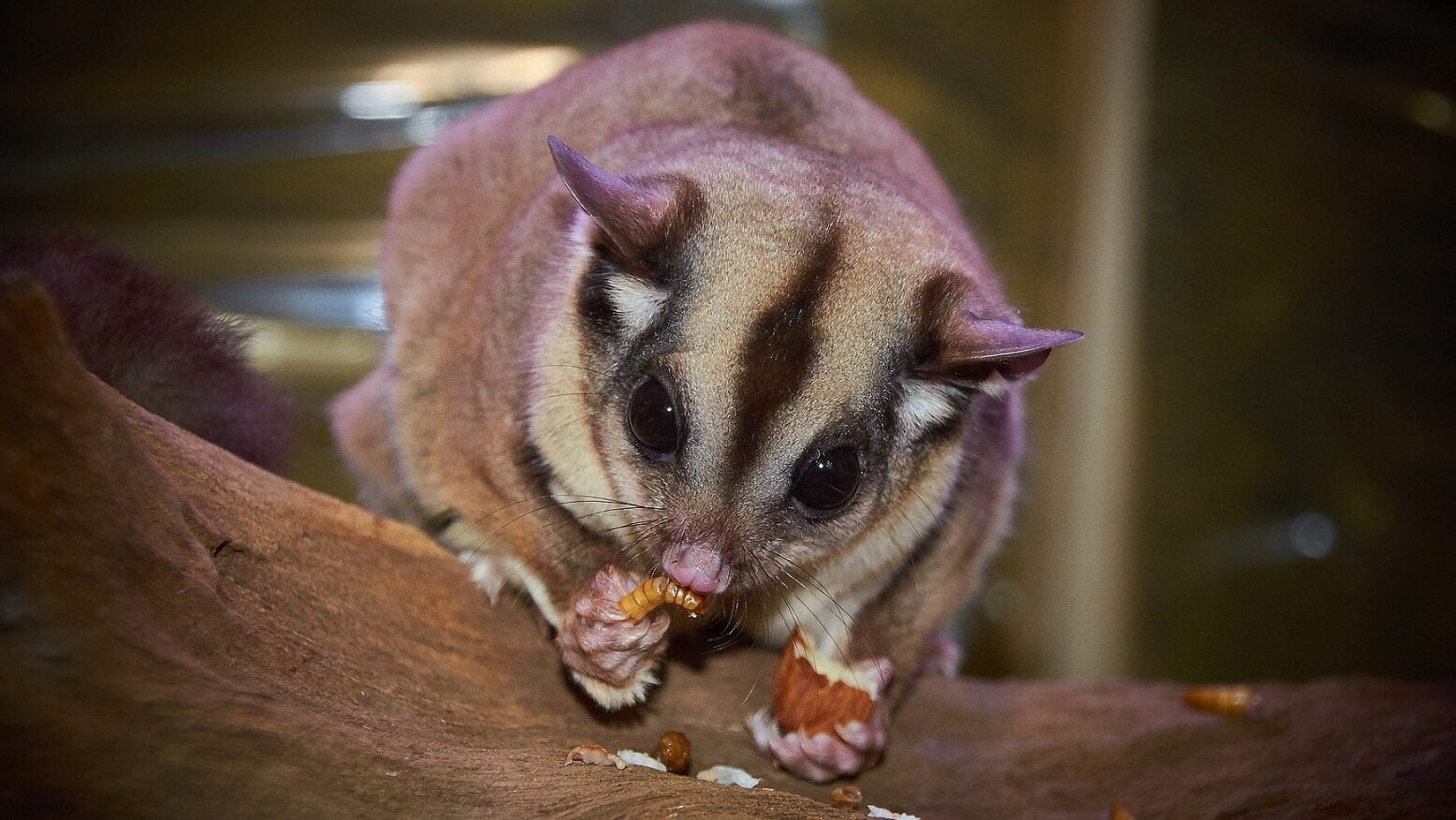
Sugar gliders require a specialized diet of fruits, vegetables, and insects, as well as a large cage with plenty of room for exercise and play.
Top 3: Ferrets
Ferrets are small, playful mammals that require a specialized diet of high-quality ferret food and plenty of exercise and playtime.
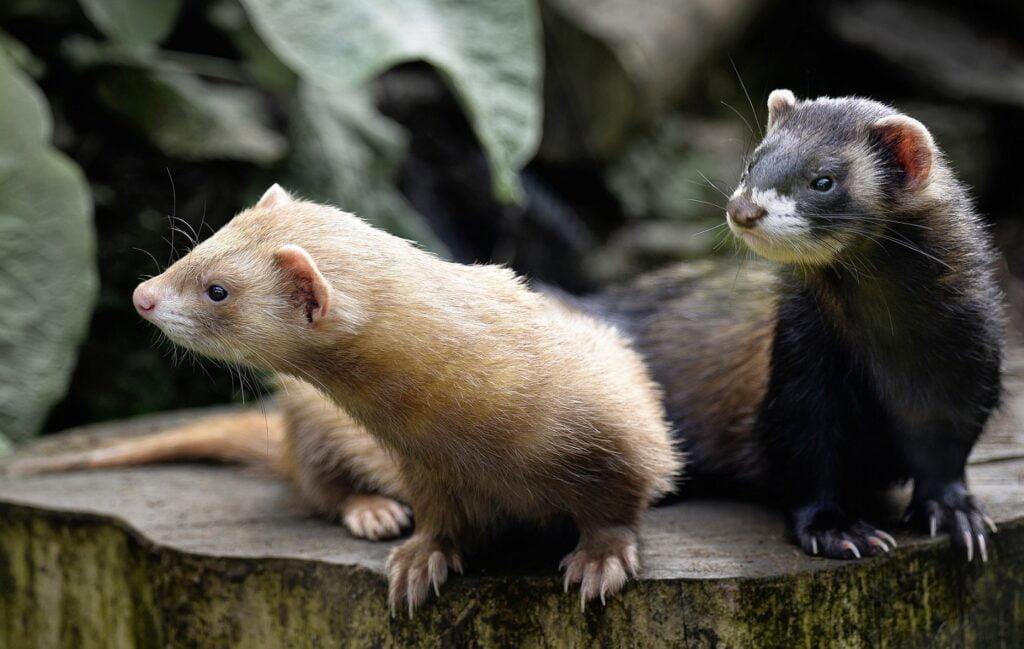
They’re often compared to a cross between a cat and a dog and are popular pets among animal lovers. Ferrets are social animals, so they’re best kept in pairs or groups.
Top 4: Hedgehogs
Hedgehogs are small, spiny mammals with curious and playful personalities. They’re native to Africa and Europe and require a specialized diet of insects and high-quality cat food.
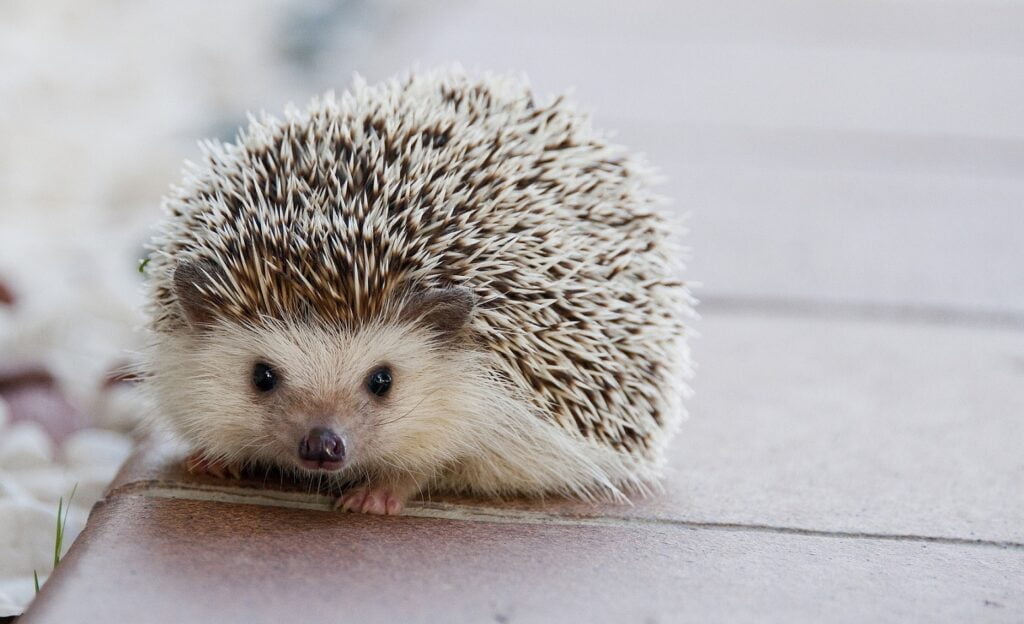
Hedgehogs are nocturnal animals, so they may not be the best choice for those who are looking for a pet that’s active during the day.
Top 5: Chinchillas
Chinchillas are small, furry rodents native to South America. They require a specialized diet of hay, pellets, and fresh vegetables, as well as a large cage with plenty of room for exercise and play.
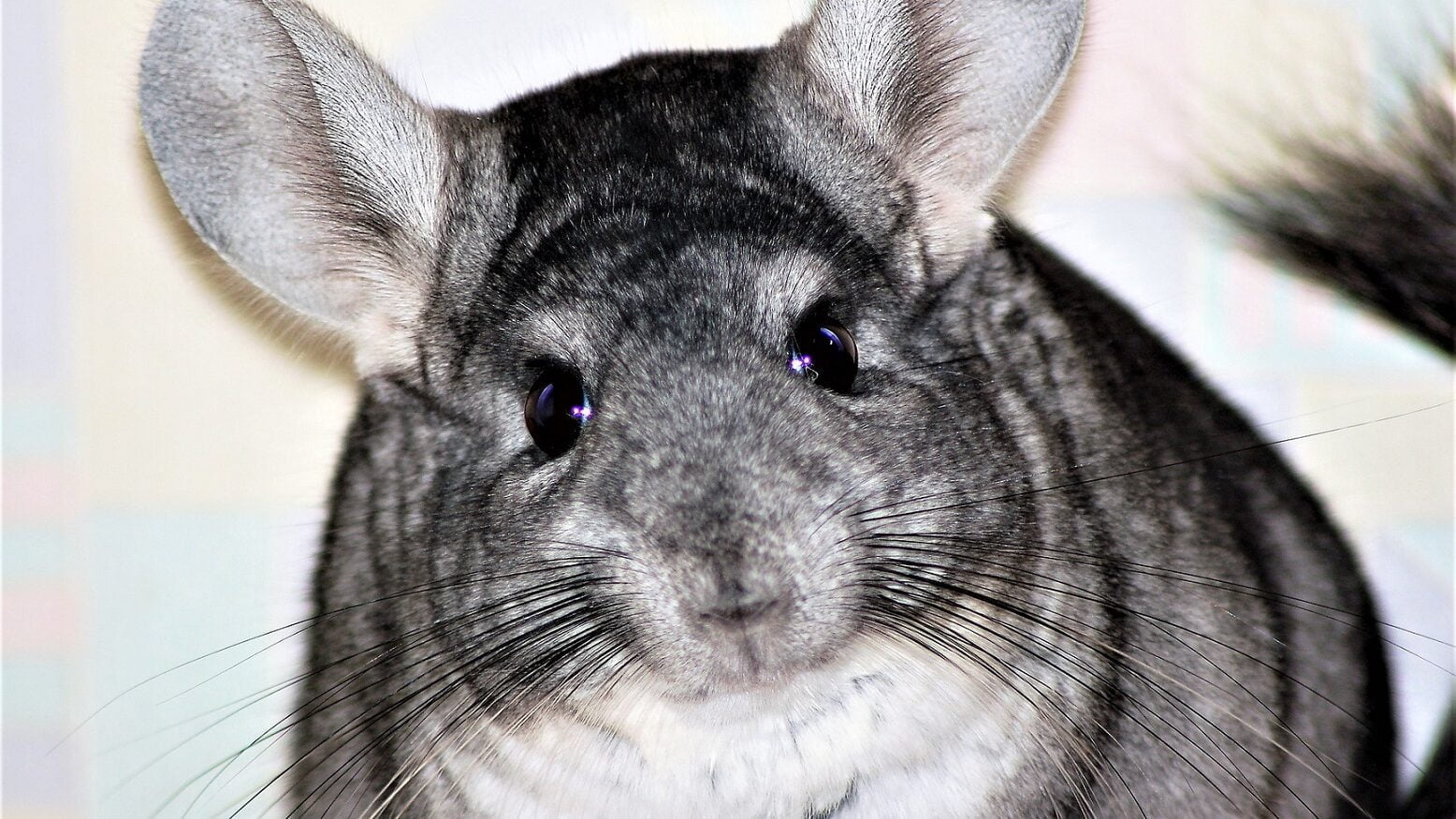
Chinchillas are social animals, so they’re best kept in pairs.
Top 6: Crested Geckos
Crested geckos are small, colorful reptiles that are native to New Caledonia. They require a specialized diet of insects and fruit-based food, as well as a spacious enclosure with plenty of hiding places and climbing structures.
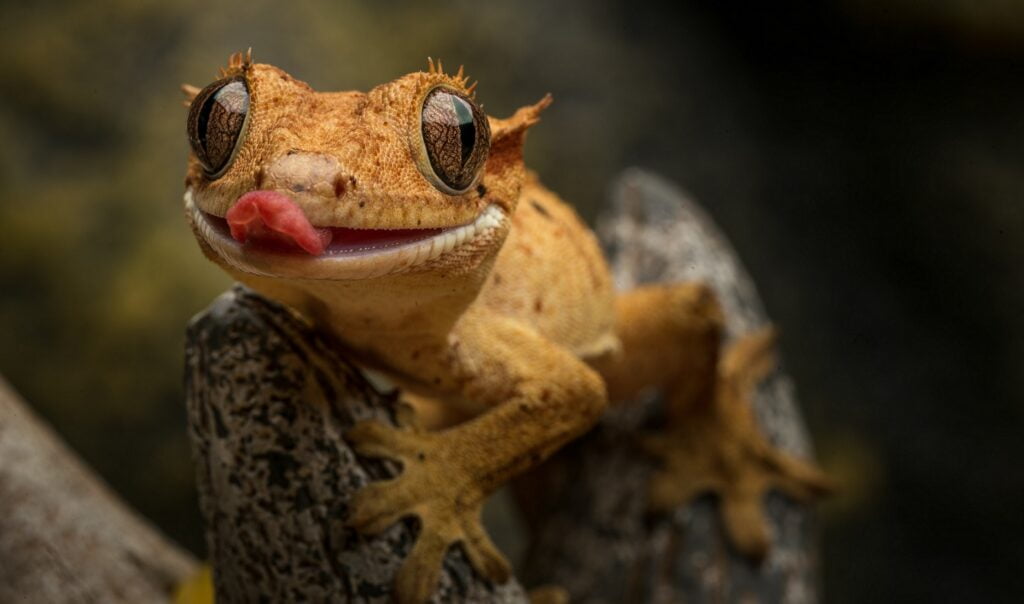
Crested geckos are low-maintenance and social, making them an excellent choice for beginner reptile owners.
Top 7: Green Iguanas
Green iguanas are large, colorful lizards native to Central and South America. They require a specialized diet of greens and vegetables, as well as a large enclosure with UVB lighting and a basking area.
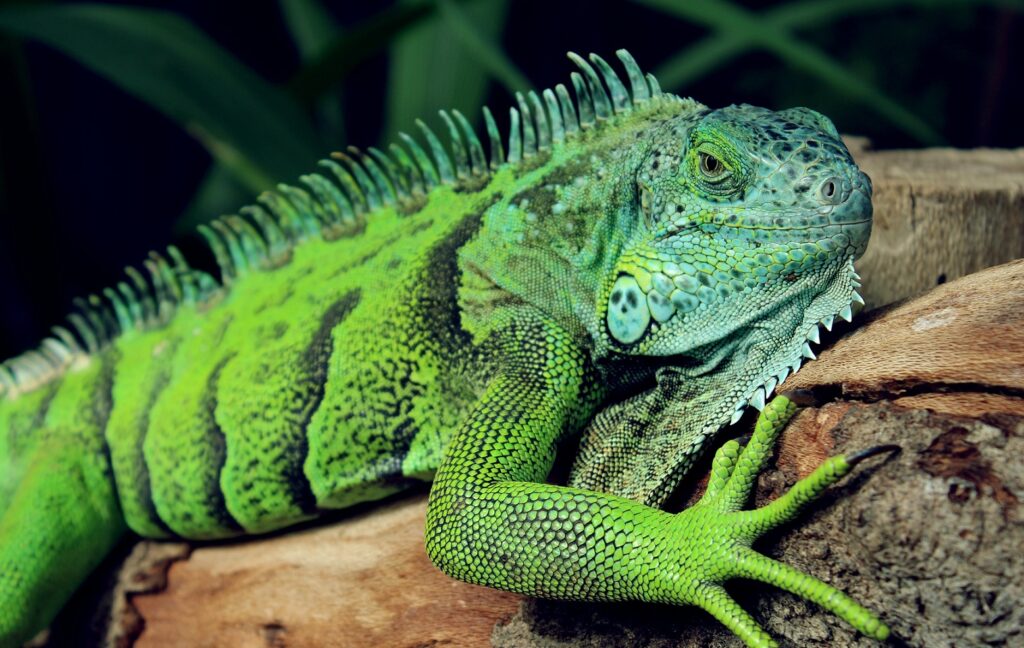
Green iguanas can be challenging to care for, so they are not recommended for first-time reptile owners.
Top 8: Tarantulas
Tarantulas are large, hairy spiders that come in a variety of colors and patterns. They require a specialized diet of live insects, a secure enclosure with proper ventilation and moisture, and careful handling.
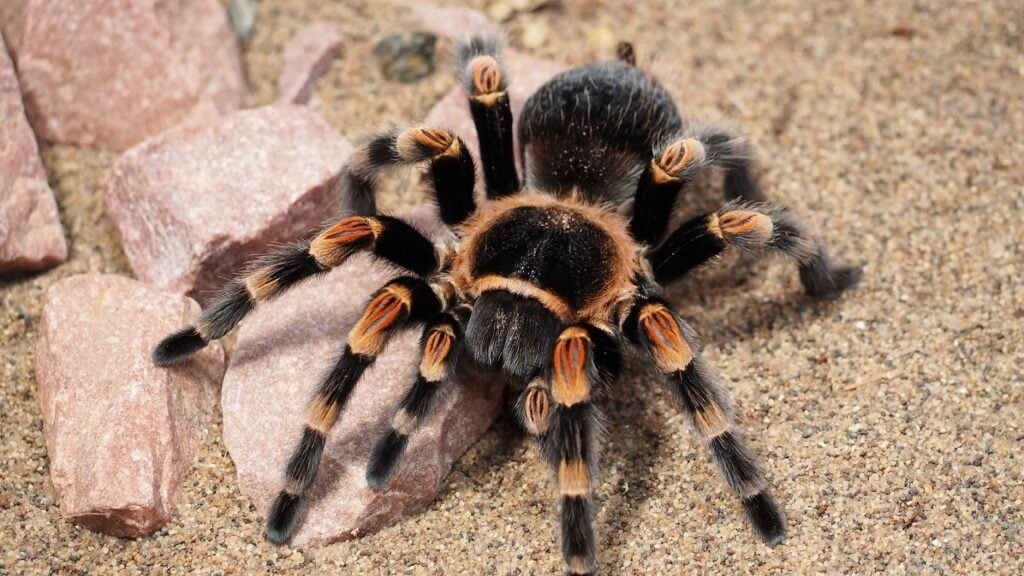
Tarantulas are not recommended for those with arachnophobia or allergies to spider bites.
Top 9: Kinkajous
Kinkajous, also known as honey bears, are small, arboreal mammals native to Central and South America. They require a specialized diet of fruit, vegetables, and protein, as well as a large enclosure with plenty of climbing opportunities and hiding places.

Kinkajous are social animals and can form strong bonds with their owners, but they require a lot of attention and care, making them a more challenging pet to keep.
Top 10: Skunks
Domestic skunks are friendly and playful animals that can make great pets. They require a specialized diet of high-quality cat food and vegetables, as well as a large enclosure with plenty of room for exercise and play.
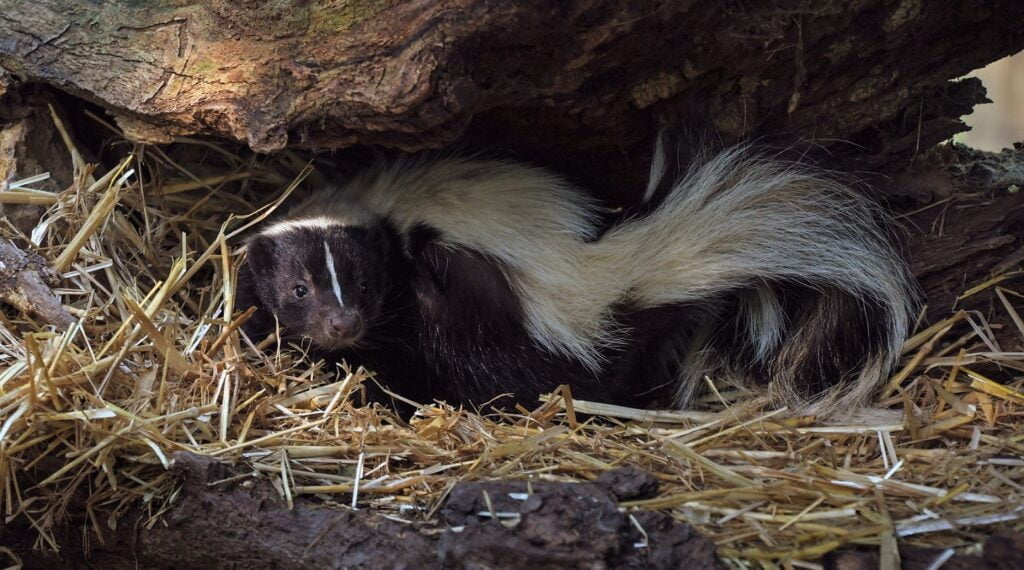
Skunks, known as social creatures, thrive in pairs or small groups. To ensure their well-being, they undergo a process called descenting between the ages of two and five weeks, making them harmless as they mature.
However, it’s important to note that in some areas, skunks are illegal to own as pets, so be sure to check local regulations before considering them as a pet.
This list is arranged based on the animals’ care requirements, socialization, and their potential as companion animals, from the best to the least recommended. However, it’s important to keep in mind that every animal is unique, and what might be the best pet for one person may not be the best fit for someone else. It’s crucial to consider the specific needs of each animal before bringing them home.
Is Owning an Exotic Pet Right for You? A Deep Dive into Care and Legal Considerations
Are you considering adding an exotic pet to your household? Before you rush out to buy that cute baby monkey or rare reptile, it’s important to understand the challenges and legal restrictions that come with owning such animals.
In this section, we’ll explore the mentioned 10 popular exotic pets above and examine their care requirements, as well as their legal status as pets in the United States. By the end, you’ll have a better understanding of which exotic pets may be right for you and your family.
| Exotic Pets | Legality in the US | Care Requirements |
|---|---|---|
| Bearded Dragons | Legal in all states | Require a spacious enclosure with proper lighting and heating, a varied diet including live insects, and regular veterinary check-ups. They also require regular handling and socialization to maintain their tame temperament. |
| Sugar Gliders | Illegal in Alaska and California, require a permit in Georgia, Hawaii, and Pennsylvania | Require a large, multi-level enclosure with plenty of toys and enrichment, a specialized diet including fresh fruits and insects, and bonding time with their owner. They are also nocturnal and require a quiet, dark environment during the day. |
| Ferrets | Illegal in California, Hawaii, and New York City, require a permit in some other states | Require a spacious, multi-level enclosure with plenty of toys and hiding places, a specialized diet including raw meat and supplements, and regular playtime outside of their enclosure to prevent boredom. They are also prone to certain health issues and require regular veterinary check-ups. |
| Hedgehogs | Illegal in California, Georgia, Hawaii, New York City, and Washington DC, require a permit in some other states | Require a spacious enclosure with proper heating, a specialized diet including live insects, and a temperature-controlled environment. They also require frequent nail trimming and can be prone to specific health issues. |
| Chinchillas | Legal in all states | Require a large, multi-level enclosure with plenty of hiding places and dust baths for hygiene. They also require a specialized diet including hay and pellets, and regular veterinary check-ups. |
| Crested Geckos | Legal in all states | Require a warm, humid environment with proper lighting and hiding places, a specialized diet including live insects and fruit-based baby food, and regular misting to maintain humidity levels. They are also nocturnal and require a quiet environment during the day. |
| Green Iguanas | Legal in all states, but require a permit in some states | Require a large, tall enclosure with proper lighting and heating, a specialized diet including fresh vegetables and fruits, and regular veterinary check-ups. They also require socialization to prevent aggression and a risk of injury from their strong tail. |
| Tarantulas | Legal in all states, but some species may require a permit | Require a spacious enclosure with proper substrate and hiding places, a specialized diet including live insects, and careful handling to avoid injury. They are also venomous and require caution when handling or cleaning their enclosure. |
| Kinkajous | Illegal in some states, including California, Georgia, and New York | Require a spacious enclosure with plenty of toys and hiding places, a specialized diet including fresh fruits and insects, and regular playtime outside of their enclosure to prevent boredom. They also require socialization to maintain their tame temperament and can be prone to specific health issues. |
| Skunks | Illegal in most states, including California, New York, and Texas | Require a spacious enclosure with proper heating and ventilation, a specialized diet including fresh fruits and vegetables, and frequent gland cleaning to prevent odor. They also require socialization and regular veterinary check-ups. |
Please take note that this is just a general overview, and it’s crucial to research the laws and regulations in your specific area before considering owning any of these pets.
Steps to Legally Own Exotic Pets: A Guide to Responsible Ownership
Whether it’s a majestic snake or an adorable sugar glider, exotic animals can be fascinating and rewarding companions. However, owning exotic pets comes with many challenges and responsibilities, including legal considerations.
In this section, we’ll go through the steps you need to take to legally own an exotic pet and ensure that you’re a responsible owner.
Step 1: Research the legal requirements
Before you consider owning an exotic pet, it’s important to research the laws and regulations in your area. Some states or countries may have strict rules about what types of animals can be kept as pets and what permits or licenses may be required.
For example, some states prohibit the ownership of certain species or require permits for certain animals. You should also research any federal laws or regulations that may apply.
Step 2: Choose a reputable breeder or seller
If you decide to purchase an exotic pet, it’s important to choose a reputable breeder or seller. Make sure they are licensed and have a good reputation for providing healthy animals. Ask for references and check reviews online. Be wary of sellers who are willing to sell you an animal without providing proper documentation or who do not seem knowledgeable about the animal’s care requirements.
Step 3: Provide appropriate housing and care
Exotic pets often have specialized housing and care requirements. Make sure you have the necessary knowledge, resources, and space to provide for the animal’s needs before bringing it home. Research the animal’s diet, housing, and environmental requirements to make sure you can provide adequate care.
Depending on the animal, you may need to provide specialized lighting, heating, or humidity control. Some animals require a lot of space to move around, while others may be content in a smaller enclosure. It’s important to understand these requirements before bringing the animal home.
Step 4: Obtain any necessary permits or licenses
Depending on the animal and your location, you may need to obtain permits or licenses to legally keep an exotic pet. Make sure to research and obtain any necessary documentation before bringing the animal home. This may involve filling out an application, paying a fee, and undergoing an inspection of your property to ensure you can provide adequate care for the animal.
Step 5: Stay up-to-date on legal requirements
Laws and regulations regarding exotic pets can change over time. It’s important to stay up-to-date on any changes and make sure you are in compliance with all legal requirements to avoid any potential legal issues.
This may involve renewing permits or licenses periodically or making changes to your animal’s care or housing to meet new requirements. By staying informed and following all legal requirements, you can ensure a safe and legal ownership experience with your exotic pet.
In conclusion, owning an exotic pet can be a unique and fulfilling experience, but it’s important to take the necessary steps to do it legally and responsibly. Make sure you choose a suitable pet that fits your lifestyle and environment, and follow all the regulations and guidelines for owning exotic animals. With the right preparation and mindset, you can enjoy the company of your exotic pet and provide it with a happy and healthy life.
What You Need to Know Before Getting an Exotic Pet: Common Questions Answered
Thinking about getting an exotic pet? While these unique and fascinating creatures can make wonderful companions, they also require special care and attention. If you’re considering bringing an exotic pet into your home, there are some important things you need to know first.
In this section, we’ll answer some of the most common questions about exotic pets and provide you with the information you need to make an informed decision.
Q: What qualifies as an exotic pet?
Exotic pets are typically defined as animals that are not commonly kept as pets, or are not native to the owner’s region. Examples of exotic pets include reptiles, birds, amphibians, small mammals, and some species of fish.
Q: Are exotic pets legal to own in the United States?
The legality of owning exotic pets varies depending on the state and local laws. Some states have strict regulations on exotic pet ownership, while others have few restrictions. It’s important to research the laws in your area before considering an exotic pet.
Q: What are the best exotic pets for beginners?
Some good exotic pets for beginners include bearded dragons, leopard geckos, corn snakes, ball pythons, sugar gliders, and hedgehogs. These animals are relatively easy to care for and have less demanding requirements than other exotic pets.
Q: How do I properly care for exotic pets?
The care requirements for exotic pets vary widely depending on the species. It’s important to research the specific needs of your chosen pet, including their diet, habitat, temperature, and social needs. Properly caring for an exotic pet also involves regular veterinary checkups and maintaining a clean and safe living environment.
Q: What are the risks of owning an exotic pet?
Some of the risks of owning an exotic pet include potential health hazards, safety concerns, and legal issues. Exotic animals can carry diseases that can be transmitted to humans, and some species may be aggressive or difficult to handle. Additionally, owning an exotic pet can lead to legal trouble if the animal is not permitted in your area.
Q: How much does it cost to own an exotic pet?
The cost of owning an exotic pet can vary widely depending on the species and their specific care requirements. Factors such as food, housing, veterinary care, and supplies can all contribute to the overall cost of owning an exotic pet.
Q: Can exotic pets be trained?
Yes, many exotic pets can be trained using positive reinforcement techniques. However, the training process can be more challenging for some species than others.
Q: How do I find a reputable breeder or seller for exotic pets?
It’s important to do your research and find a reputable breeder or seller when considering an exotic pet. Look for reviews and recommendations from other pet owners, and make sure the breeder or seller is licensed and follows proper animal welfare practices.
Q: What should I do if I can no longer care for my exotic pet?
If you can no longer care for your exotic pet, it’s important to find a responsible and suitable new home for them. Look for exotic animal rescue organizations or shelters that can provide proper care and placement for your pet.
Q: Are there any organizations that can help with the adoption of exotic pets?
Yes, there are many organizations that specialize in the adoption and placement of exotic pets. Look for reputable organizations in your area that have experience with the specific species of pet you’re interested in.
Q: How to tame exotic pets?
Taming exotic pets requires patience, consistency, and a deep understanding of the specific animal’s behavior and needs. It’s important to establish trust with your exotic pet and to create a comfortable and safe environment for them to adjust to their new home.
Techniques for taming may vary depending on the type of pet, but positive reinforcement is often the most effective method. Offering treats, using gentle touch, and spending regular time with your pet can all help to build a bond and trust between you and your exotic pet.
It’s crucial to understand the specific needs and behaviors of the exotic pet you plan to tame to ensure that you’re providing them with the proper care and attention they require.
Q: What are some types of exotic pets?
There are various types of exotic pets, including:
Reptiles: This includes snakes, lizards, geckos, and turtles.
Birds: These include parrots, macaws, and cockatoos.
Small mammals: This includes hedgehogs, sugar gliders, and ferrets.
Invertebrates: This includes tarantulas and scorpions.
Fish: This includes various species of tropical fish and saltwater fish.
Amphibians: This includes frogs, salamanders, and newts.
Primates: This includes monkeys and lemurs.
Big cats: This includes lions, tigers, and leopards.
Q: What is the cutest exotic pet?
This is my personal preference but I find sugar gliders the cutest exotic pet because of their big eyes, soft fur, playful nature and ability to glide through the air.
Note: However, cuteness is subjective, and what one person finds cute may not be the same for another.
Q: Are snakes considered as exotic pets?
Yes, snakes are generally considered as exotic pets because they are not commonly kept as pets and require specialized care. Many species of snakes also come from other parts of the world, which adds to their exotic nature. However, it’s important to note that not all snakes are suitable as pets and there may be legal restrictions on owning certain species.
Q: How to get an exotic pet license in North Carolina?
To obtain an exotic pet license in North Carolina, you will need to follow these steps:
1. Check the legality of the exotic pet you want to own. Not all exotic pets are legal in North Carolina, so it’s important to make sure that the species you’re interested in is allowed.
2. Contact the North Carolina Wildlife Resources Commission (NCWRC) to obtain the necessary paperwork and application for an exotic pet license.
3. Complete the application and provide all required documentation, including proof of ownership or proof of purchase of the exotic pet.
4. Pay any applicable fees associated with the application process.
5. The NCWRC will review your application and conduct a background check to ensure that you have no prior convictions or violations of wildlife laws.
6. Once your application is approved, you will receive your exotic pet license, which must be renewed annually.
It’s important to note that the process and requirements for obtaining an exotic pet license may vary depending on the type of exotic pet you want to own and the specific regulations in your county or municipality.
It’s always best to consult with local authorities and experts to ensure that you are following all the necessary steps for responsible ownership of an exotic pet.
Prepare for Your Exotic Friends: Research, Consultation, and Care
Owning an exotic pet can be a rewarding and fulfilling experience, but it’s important to understand the challenges and responsibilities that come with it. By knowing what to expect and being prepared for the unique needs of your exotic pets, you can create a happy and healthy home for your new companion.
So before you make any decisions, be sure to do your research, consult with experts, and consider all the factors involved in owning an exotic pet. With the right knowledge and care, you can enjoy a wonderful relationship with your exotic pets for years to come.
Also Read: Choosing the Right Fish Food: A Guide to Keeping Your Fish Healthy and Happy
Well, what do you think about the article?
Did you enjoy reading “10 Best Exotic Pets: An Ownership Guide (With Pictures)“? If so, please comment down below. We would love to hear your thoughts about this comprehensive guide.
To see more content like this check the Guides section of Money For My Beer.

Chief Editor and Website Owner.
Hey, I’m Ryan, a software guy and the owner of Money For My Beer. I’m the one making sure all our posts on the site are awesome.
I usually handle tech stuff that might not be super interesting to everyone, like programming enterprise software, apps, games, and websites. Cool stuff, right? I also help clients with SEO and sometimes create games.

